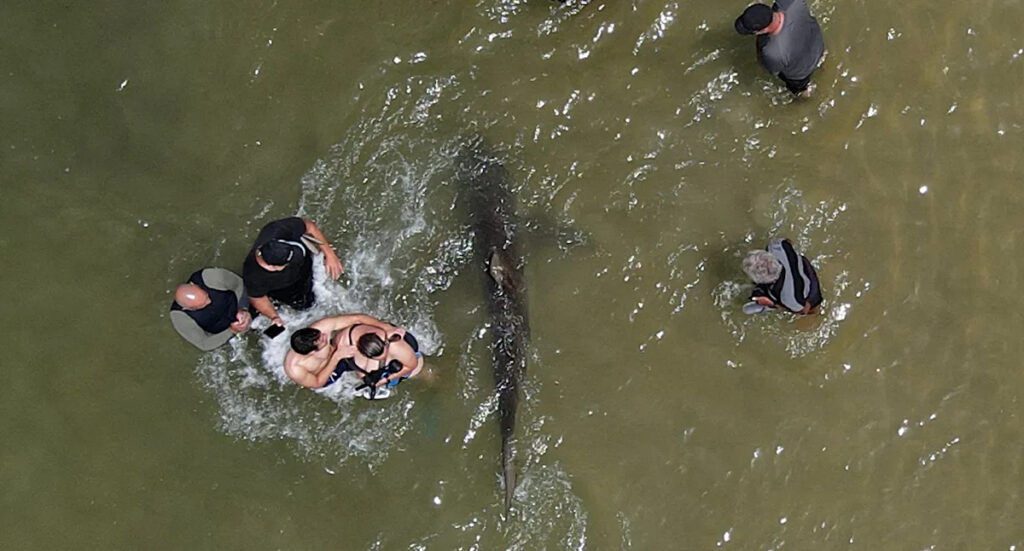
A tragic incident off the coast of Israel has sparked a global conversation about shark behavior and human interaction with marine life. In April, a tourist was killed by dusky sharks, a species previously considered harmless to humans, near the holiday town of Hadera. An analysis published in the journal Ethology concluded that a “bold shark” likely bit the snorkeler’s GoPro camera, triggering a “feeding frenzy” that led to the fatal attack.
This incident has prompted Dr. Gavin Naylor, a leading expert on shark attacks, to emphasize how environmental changes can alter animal behavior. According to Dr. Naylor, dusky sharks are not typically found in large groups, but conditions near Hadera may have created an unusual gathering. Warm water discharge from a nearby power plant and nitrates entering the ocean from an estuary likely attracted bait fish, which in turn drew the sharks closer to shore.
Environmental Factors and Human Interaction
The beach, located 25 kilometers north of Tel Aviv, is a popular destination for tourists eager to observe sharks that can grow over three meters long. Dr. Naylor suggests that the frequent human interaction with sharks in this area could have contributed to the attack. “Local beachgoers are used to interacting with the sharks, so the animals become acclimated to human presence,” he noted.
Dr. Naylor, who directs the Florida Program for Shark Research and manages the International Shark Attack File (ISAF), explained that various factors, including human behavior and prey availability, are examined to understand such incidents. The ISAF has previously categorized a fatal shark attack off Sydney’s Little Bay in 2023 as “provoked” due to the presence of a bait ball nearby.
Shifting Shark Behavior and Climate Change
While dusky sharks are present along much of the Australian coast, they are not commonly associated with attacks on humans. However, Dr. Naylor has observed changes in behavior among other shark populations. For instance, bull sharks in Sydney have adapted to the city’s changing environmental conditions, influenced by climate change, altering their migration patterns to arrive earlier and leave later.
“Duskies are usually not implicated in bites on humans. But different populations often have different behaviors,” Dr. Naylor explained. He compared the situation to New Smyrna Beach in Florida, where a high density of blacktip sharks near a popular surfing beach results in frequent bites on surfers each year.
“These are not malevolent creatures hovering near beaches waiting to kill people,” Dr. Naylor stated, emphasizing the importance of understanding how environmental changes can shape animal behavior.
Global Implications and Future Considerations
The incident in Israel serves as a reminder of the complex relationship between humans and marine life. As coastal environments continue to change, understanding these dynamics becomes increasingly important. Dr. Naylor highlighted how certain species, like white-tip sharks, seldom encounter humans due to their preference for deep waters. Yet, in regions like the Red Sea’s Gulf of Aqaba, deep water predators find themselves near tourist beaches, occasionally leading to human encounters.
Moving forward, experts stress the need for increased awareness and research into how environmental factors influence shark behavior. As climate change and human activities continue to alter marine ecosystems, understanding these interactions will be crucial in mitigating risks and fostering coexistence between humans and marine life.
The tragic death in Israel underscores the importance of respecting wildlife and the environments they inhabit. By fostering a deeper understanding of these dynamics, both tourists and local communities can better navigate the challenges posed by changing marine ecosystems.







